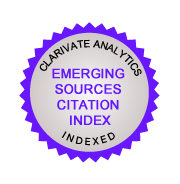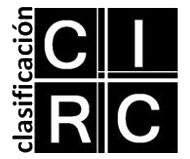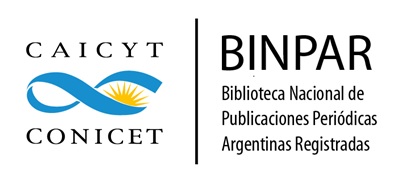Valores democráticos para tiempos de crisis. Hallazgos de dos teorías
DOI:
https://doi.org/10.24215/16696581e023Palabras clave:
valores democráticos, cultura política, medición de la democracia.Resumen
Desde la perspectiva de la cultura política, el artículo examina una diversidad de índices de democracia a la luz de las teorías de los valores de autoexpresión de Inglehart y Welzel y de los valores culturales de Schwartz, a fin de indagar la naturaleza de las orientaciones culturales que subyacen en distintos modos de conceptualizar y medir la democracia. El trabajo estudia teórica y empíricamente los puntos de convergencia de ambas teorías, investigando la relación de sus indicadores culturales con los diversos índices en una muestra de 100 países. Se utilizan dos medidas de “democracia efectiva” propuestas en la literatura, así como las elaboradas por Freedom House, Banco Mundial, Bertelsmann Stiftung y el Centro de Investigación en Ciencias Sociales de Berlín (WZB) y Universidad de Zúrich (UZH). Las variables culturales son usadas para predecir cada uno de estos índices de democracia en modelos de regresión multivariados que incluyen además una batería de indicadores económicos, políticos y sociales. Las conclusiones apuntan a contribuir al debate normativo en un momento en el que crece la discusión pública y académica sobre una crisis o declive mundial de la democracia.
Descargas
Citas
Alesina, A., Devleeschawer, A., Easterly, W. Kurlat, S. & Wacziarg, R. (2003). “Fractionalization”. En Journal of Economic Growth, 8: 155-194.
Alexander, A., Inglehart, R. & Welzel, C. (2011). “Measuring effective democracy: A defense”. En International Political Science Review, 33(1), 41–62.
Almond, G., & Verba, S. (eds.) (1989). The Civic Culture Revisited. Newbury Park: Sage.
Almond, G., & Verba, S. (1963). The Civic Culture. Newbury Park: Sage.
Armstrong, D.A. (2011). “Stability and change in the Freedom House political rights and civil liberties measures”. En Journal of Peace Research, 48(5) 653–662
Art, D. (2012). “What Do We Know About Authoritarianism After Ten Years?” En Comparative Politics, 44(3), 351–73.
Baldwin, R. (2016). The Great Convergence. Cambridge: The Belknap Press of Harvard University Press.
Bertelsmann Stiftung (2016). “BTI 2016. Global Results”. [en línea] <http://bertelsmann-stiftung.de>.
Bollen, K.A. & Paxton, P. (2000). “Subjective Measures of Liberal Democracy”. En Comparative Political Studies, 33(1), 58-86.
Cingranelli, D.L. & Richards, D.L. (2010). “The Cingranelli and Richards (CIRI) Human Rights Data Project”. En Human Rights Quarterly, 32(2), 401-24.
Clark, W.; Golder, M. & Golder, S.N. (2013). Principles of Comparative Politics. Thousand Oaks: SAGE.
Coppedge, M. (2012). Democratization and Research Methods. Cambridge: Cambridge University Press.
Coppedge, M. & Gerring, J. (2011). “Conceptualizing and Measuring Democracy: A New Approach”. En Perspective on Politics, 9(2), 247-67.
Dahlum, S. & Knutsen, C.H. (2016). “Democracy by Demand?”. En British Journal of Political Science, 47(2), 437-61.
Dalton, R. & Welzel, C., (eds.) (2014). The Civic Culture Transformed. New York: Cambridge University Press.
Delfino, G. & Beramendi, M. (2015). “Un análisis sobre la confianza y el interés cívico en Argentina: estudio de los datos de la World Values Survey 1984-2013”. En Anuario de Investigaciones / Facultad de Psicología UBA, XXI, 189-96.
Diamond, L.J. & Plattner, M.F. (eds.) (2015). Democracy in Decline? Baltimore: John Hopkins University Press.
Diamond, L.J. & Morlino, L. (2004). “The Quality of Democracy: An Overview”. En Journal of Democracy, 15(4), 20-31.
Dobewall, H. & Rudnev, M. (2014). “Common and Unique Features of Schwartz’s and Inglehart’s Value Theories at the Country and Individual Levels”. En Cross-Cultural Research, 48(1), 45–77.
Easton, D. (1965). A Systems Analysis of Political Life. New York: John Wiley and Sons.
Eckstein, H. (1966). Division and Cohesion in Democracy. Princeton: Princeton University Press.
Elkins, Z. (2000). “Gradations of democracy? Empirical tests of alternative conceptualizations”. En American Journal of Political Science, 44(2), 287–94.
Ercan, S.A. & Gagnon, J.P. (2014). “The Crisis of Democracy. Which Crisis? Which Democracy?” En Democratic Theory, 1(2), 1-10.
Foa, R.S. & Mounk, Y. (2016). “The Democratic Disconnect”. En Journal of Democracy, 27(3), 5-17.
Hadenius, A. & Teorell, J. (2005). “Cultural and Economic Prerequisites of Democracy: Reassessing Recent Evidence”. En Studies in Comparative International Development, 39(4), 87-106.
Held, D. (2006). Models of Democracy. Cambridge: Polity Press.
Hochschild, A.R. (2016). Strangers in their Own Land. New York: The New Press.
Hofstede, G. (1980). Culture’s consequences. Beverly Hills: Sage.
Hoover, K. & Perez, S. (2007). “Truth and Robustness in Cross-country Growth Regressions”. En Oxford Bulletin of Economics and Statistics, 66(5, 765-98.
Inglehart, R. & Norris, P. (2017). “Trump and the Populist Authoritarian Parties”. En Perspectives on Politics, 15(2), 443-54.
Inglehart, R. & Norris, P. (2016). “Trump, Brexit, and the rise of Populism”. Paper del encuentro anual de American Political Science Association, Philadelphia, 2 de septiembre.
Inglehart, R. & Welzel, C. (2005). Modernization, Cultural Change, and Democracy. Cambridge: Cambridge University Press.
Inglehart, R. (2016a). “How Much Should We Worry?” En Journal of Democracy, 27(3), 18-23.
Inglehart, R. (2016b). “Inequality and Modernization”. En Foreign Affairs, 95(1): 2-10.
Inglehart, R. (1997). Modernization and Postmodernization. Princeton: Princeton University Press.
Inglehart, R. (1990). Culture Shift in Advanced Industrial Society. Princeton: Princeton University Press.
Jorge, J.E. (2017). “Estado de Derecho y Valores Democráticos. Las Direcciones del Cambio Cultural”. En Question, 1(54), 172-206.
Jorge, J.E. (2016a). “La Confianza Interpersonal Revela sus Misterios. ¿La Partícula de Dios?”. En Question, 1(52): 143-74.
Jorge, J.E. (2016b). “Teoría de la Cultura Política. Enfocando el Caso Argentino”. En Question, 1(49): 300-21.
Jorge, J.E. (2015). “La Cultura Política Argentina: una Radiografía”. En Question, 1(48): 372-403.
Jorge, J.E. (2012). “Same-sex marriage in Argentina. Tolerance and Discrimination in Political Culture”. En Journal of Research in Peace, Gender & Development, 2(3): 60-71.
Jorge, J.E. (2010). Cultura Política y Democracia en Argentina. La Plata: Edulp.
Kaufmann, D., Kraay, A. & Mastruzzi, M. (2010): “The Worldwide Governance Indicators. Methodology and Analytical Issues”. Policy Research WP 5430, World Bank.
Kaufmann, D. & Kraay, A. (2002). “Growth without Governance”. En Economía, 3(1), 169-229.
La Porta, L., López De-Silanes, F., Schleifer, A. & Vishny, R. (1999). “The Quality of Government”, En The Journal of Law, Economics, & Organization, 15(1), 222-79.
Levitsky, S. & Way, L. (2015). “The Myth of Democratic Recession”. En Diamond, L.J. & Plattner, M.F, op. cit., (pp. 58-76).
Levitsky, S. & Way, L. (2010). Competitive Authoritarianism. Cambridge: Cambridge University Press.
Licht, A.N., Goldschmidt, C. & Schwartz, S.H. (2007). “Culture rules: The foundations of the rule of law and other norms of governance”. En Journal of Comparative Economics, 35, 659–68.
Luce, E.E. (2017). The Retreat of Western Liberalism. New York: Atlantic Monthly Press.
Merkel, W. (2016). “Democracies and Their Crises Reconsidered”. En Democratic Theory, 3(1), 91-108.
Merkel, W. (2004). “Embedded and Defective Democracies”. En Democratization, 11(5), 33-58.
Merkel, W., Bochsler, D. et al. (2016). Democracy Barometer. Methodology. Version 5. Aarau: Zentrum für Demokratie.
Milanovic, B. (2016). Global Inequality. Cambridge: The Belknap Press of Harvard University Press.
Munck, G.L. (2009). Measuring Democracy. Baltimore: Johns Hopkins University Press.
Pemstein, D., Meserve, S.A. & Melton, J. (2010). “Democratic Compromise: A Latent Variable Analysis of Ten Measures of Regime Type”. En Political Analysis, 18(4): 426–49.
Piketty, T. (2014). Capital in the Twenty-First Century. Cambridge: The Belknap Press of Harvard University Press.
Price, G. N. (2003). “Economic Growth in a Cross-section of Nonindustrial Countries”. En Review of Development Economics, 7(3), 478–95.
Rothman, J. (2016). “How to restore your faith in democracy”. En The New Yorker, 11 de noviembre.
Schwartz, S. H. (2009). “Culture Matters”. En Wyer, R.S., Chiu, C.Y. & Hong, Y.Y. (eds.). Understanding Culture (pp. 127-50). New York: Psychology Press.
Schwartz, S.H. (2008a). “National Cultural Value Orientations Scores for 80 Countries”. En Research Gate [en línea] <https://doi.org/10.13140/RG.2.1.3313.3040>
Schwartz, S. H. (2008b). Cultural value orientations: Nature and implications of national differences. Moscow: State University, Higher School of Economics Press.
Schwartz, S. H. (2006). “A Theory of Cultural Value Orientations. Explication and Applications”. En Comparative Sociology, 5(2-3), 136-182.
Schwartz, S. H. (1992). “Universals in the content and structure of values”. En Zanna, M. (ed.), Advances in Experimental Social Psychology (pp. 1-65). New York: Academic Press.
Treier, S. & Jackman, S. (2008). “Democracy as a latent variable”. En American Journal of Political Science, 52(1), 201–17.
Welzel, C. & Kirsch, H. (2017). “Democracy Misunderstood: Authoritarian Notions of Democracy around the Globe”. En World Values Research, 9 (1), 1-29.
Welzel, C., Inglehart, R. & Kruse, S. (2016). “Pitfalls in the Study of Democratization”. En Bristish Journal of Political Science, 47(2), 463-72.
Welzel, C. (2013). Freedom Rising. New York: Cambridge University Press.
Welzel, C. (2010). “How Selfish Are Self-Expression Values? A Civicness Test”. En Journal of Cross-Cultural Psychology, 41, 152–74.
Descargas
Publicado
Cómo citar
Número
Sección
Licencia
La aceptación de un original por parte de la revista implica la cesión no exclusiva de los derechos patrimoniales de los/as autores/as en favor del editor, quien permite la reutilización, luego de su edición (postprint), bajo una Licencia Creative Commons Atribución-NoComercial-CompartirIgual 4.0 Internacional (CC BY-NC-SA 4.0)
Acorde a estos términos, el material se puede compartir (copiar y redistribuir en cualquier medio o formato) y adaptar (remezclar, transformar y crear a partir del material otra obra), siempre que a) se cite la autoría y la fuente original de su publicación (revista y URL de la obra), b) no se use para fines comerciales y c) se mantengan los mismos términos de la licencia.
La cesión de derechos no exclusivos implica que luego de su edición (postprint) en Question las/os autoras/es pueden publicar su trabajo en cualquier idioma, medio y formato; en tales casos, se solicita que se consigne que el material fue publicado originalmente en esta revista.
Tal cesión supone, también, la autorización de los/as autores/as para que el trabajo sea cosechado por SEDICI, el repositorio institucional de la Universidad Nacional de La Plata, y sea difundido en las bases de datos que el equipo editorial considere adecuadas para incrementar la visibilidad de la publicación y de sus autores/as.
Asimismo, la revista incentiva a las/os autoras/es para que luego de su publicación en Question depositen sus producciones en otros repositorios institucionales y temáticos, bajo el principio de que ofrecer a la sociedad la producción científica y académica sin restricciones contribuye a un mayor intercambio del conocimiento global.

















































